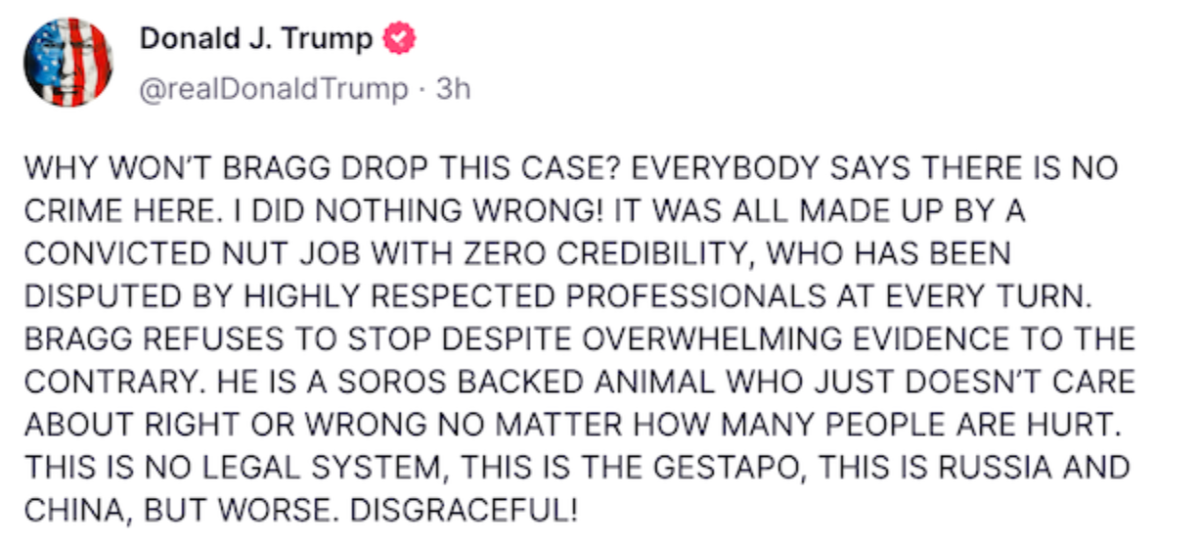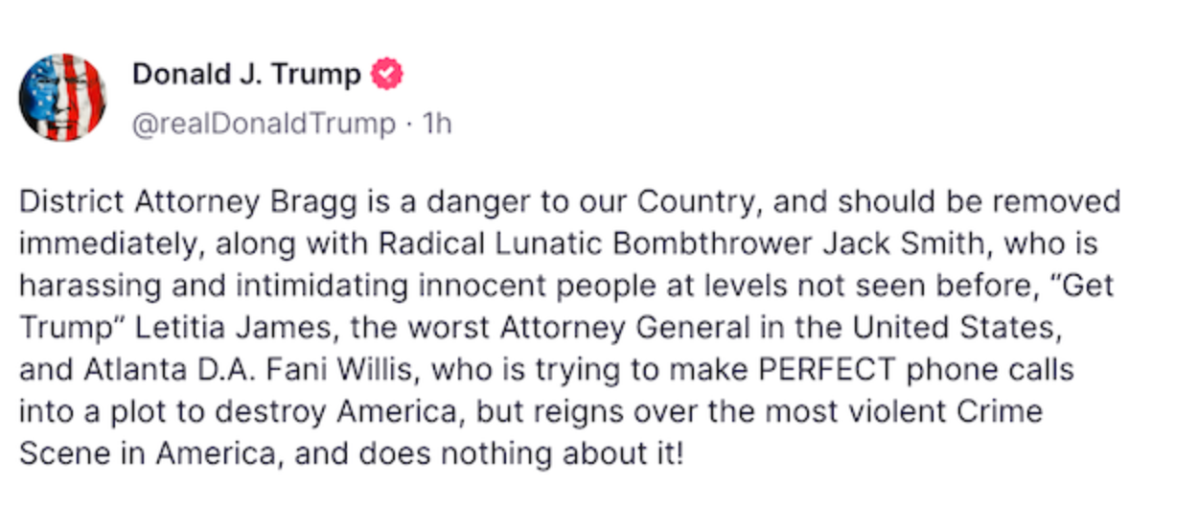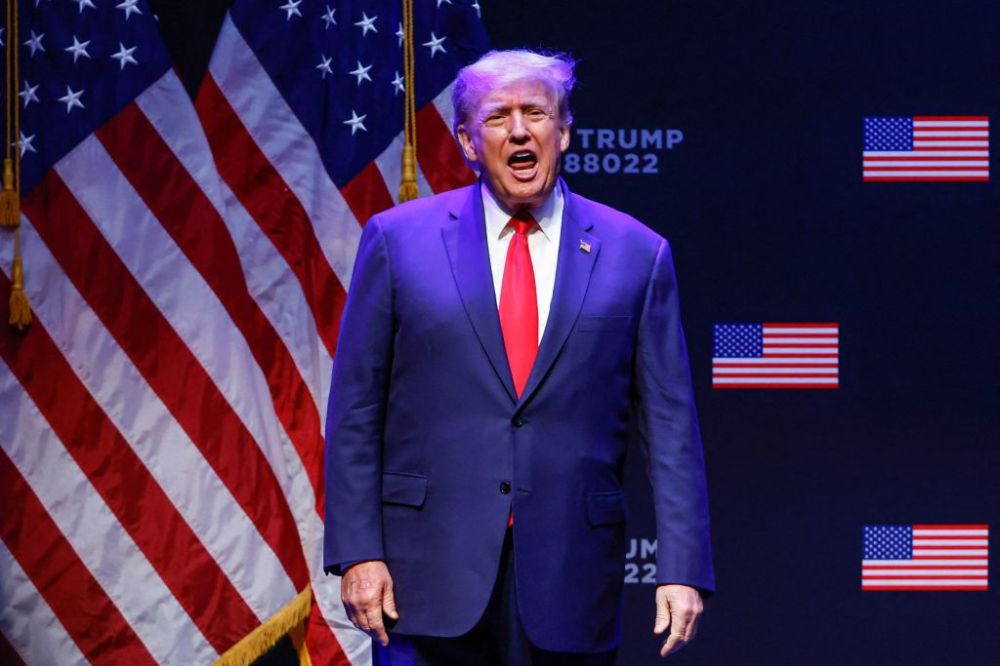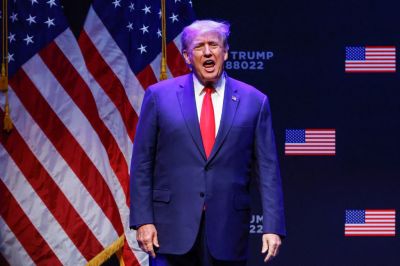In 2008, Rush Limbaugh had an idea.
Rush had lots of ideas, some good, some dreadful. His big idea 15 years ago was that his ardently right-wing audience should … vote for Democrats.
He wasn’t experiencing an ideological conversion. That wouldn’t happen until 2016, when he realized that retaining his pride of place as the king of conservative talk radio required him to loosen up about the whole “conservative” thing. What Limbaugh wanted was to weaken his political enemies by sowing discord among them.
The Republican presidential primary was settled by March 2008. John McCain had won New Hampshire, South Carolina, and Florida, placing him on a glide path to the nomination. But the Democratic primary remained a live and increasingly bitter matter. Barack Obama had taken the lead in delegates but Hillary Clinton and her many devotees refused to surrender. The left faced the prospect of a long, divisive contest stretching into summer punctuated by the two camps sporadically accusing each other of racism or sexism, as the case may be.
At the end of that road lay the possibility that unelected party apparatchiks known as “superdelegates” would decide the nomination at the Democratic convention, enraging fans of whichever candidate came up short. The risk of blue America fracturing before the general election looked real.
Rush sensed opportunity.
He announced to his listeners a new initiative to prolong Democrats’ misery, which he dubbed “Operation Chaos.” With the Republican nomination now decided, Limbaugh declared, conservatives in states with upcoming primaries should cross over and vote in the Democratic contest for whichever candidate trailed in the overall delegate count. “The endgame is to see that neither of these candidates can win by virtue of the primaries,” he explained at the time. “One or the other will win only when the superdelegates decide who they want. And whoever the supers choose will infuriate the loser's supporters. More chaos.”
Thus it came to be that the scourge of Bill Clinton’s administration ended up, briefly, encouraging Republicans to support Hillary Rodham Clinton.
It was mischievous, clever, Machiavellian. And the Democratic primary did end up dragging on for months. But Rush’s plan had a critical, if unavoidable, flaw: It came far too late in the 2008 cycle to gain real traction on the right. Because the Republican primary was also competitive that year, right-wingers had a strong incentive to vote in their own party’s election until February. And once McCain’s nomination was assured, many Republicans in upcoming primaries either checked out of politics for a while, I suspect, or couldn’t get motivated or organized enough to clear any administrative hurdles barring them from voting in the other party’s election.
To succeed, a plan like “Operation Chaos” requires early notice and a low-stakes contest on the pro-chaos side.
On that note, you may perhaps be aware that it’s quite early in the 2024 primary cycle, leaving plenty of time for organizing before voting begins. And with due respect to Marianne Williamson, this year’s Democratic contest will not be competitive.
Hmmm.
I’m not inviting Democrats to cross over and vote for whichever Republican happens to be in second place for the sake of prolonging the primary, as Limbaugh did in 2008. I’m inviting them to cross over and vote for whichever Republican is best positioned to defeat Donald Trump.
We cannot do another four years of this. The country will break.


As you probably know, the rules for voting in primaries vary from state to state. Those with “closed primaries,” like Florida, require a voter to register in advance with the party whose primary he intends to vote in. That involves planning, and Americans aren’t great about planning. Worse, it forces a potential crossover voter to formally affiliate with a party he might despise. Asking a Republican-hating Democrat to re-register as a Republican (to vote for Ron DeSantis!) is asking a lot, psychologically.
To succeed in states with closed primaries, Operation Chaos 2.0 would need to get organized quickly. Fortunately, those states are a minority.
Some states run what are known as “semi-closed primaries.” You can’t vote in one party’s primary if you’re registered with the other party but you can vote in either primary if you’re registered as an independent. The psychological hurdle to crossing over is lower in these states, then, as one needn’t officially join Trump’s GOP to help choose its nominee. Among the states with a semi-closed primary: New Hampshire.
Finally, there are “open primaries.” Some are truly open, where you show up on primary day and request whichever party’s ballot you like, no questions asked. Some are technically closed while being functionally open, allowing voters to re-register at their polling place on primary day and vote in their new party’s election. No advance planning required. Iowa, the first and most important election on the Republican calendar, uses that scheme.
There are numerous resources available online to educate voters about the rules in their state and myriad liberal organizations skilled at registering and organizing liberal voters. All of that being so, I can’t fathom why Democrats would waste votes on Joe Biden in an (essentially) uncontested primary next year rather than seize the opportunity to send Trump, at long last, into richly deserved political oblivion.
I can, however, imagine how a Democrat might respond to that:
We have no duty to rescue Republicans from their own irresponsible choices. If they insist on renominating a twice-impeached mob-inciting soon-to-be-indicted coup-plotter for president, let them reap the whirlwind in a general election.
It’s true, Democrats have no duty to protect populist Republicans from their fascist impulses. But they do have a patriotic duty to protect the country from Trump. As do I, which is why I and other Never Trumpers crossed the aisle for Biden in 2020 and for downballot Democrats running against anti-democratic Trump slobberers like Kari Lake in 2022.
With all due modesty, my liberal friends, you might not have won without us. Insofar as you feel indebted to those on the right who put aside partisan politics to make common cause, consider this a polite request for repayment.
As for reaping the whirlwind, I would find that logic compelling if Joe Biden were a spry lad of 75. As it is, we’re precisely one 80-year-old presidential health hiccup away from the Republican nominee becoming the favorite in 2024. If, God forbid, Biden were to have a serious health crisis next fall, the GOP might be unbeatable. Ushering Trump through the primary in the expectation that he’s easy pickings in a general election is playing Russian roulette with three bullets in the cylinder, if not more.
We’ll have two opportunities next year to rid ourselves of a singular menace to America’s liberal tradition. Only fools would decline to avail themselves of both.
Liberals already have some practice at what I’m proposing. Last year in Wyoming, as Liz Cheney prepared to face the wrath of MAGA in the Republican primary, the number of registered Democrats shrank by 20 percent while the number of registered Republicans surged by 10. That wasn’t enough to affect the outcome, as there are roughly six Democrats in Wyoming. But in a Republican contest between Trump and DeSantis, where the two might end up separated by a few points?
I say again: Hmmm.
Here too I can imagine how a Democrat might respond.
DeSantis is appalling. If Mike Pence or Nikki Haley were in second place, I could talk myself into voting for them in a Republican primary. But I’m not voting for a culture-war-crusading authoritarian who’s selling himself as “Trump, but competent.” He’s worse than Trump is.
I understand this objection, to a point.
DeSantis is plenty bad. His anti-vax pandering is repulsive. His unconstitutional retaliation against Disney, capped by appointing cranks to ride herd on the company, is indefensible. His all-things-to-all-sides maneuvering on Ukraine is cringy. He’s squeezing every cynical drop of political juice he can from the populist right’s moral panic over gays and wokeness, to the consternation of core Democratic constituencies. It’s fair to worry what a man willing to chase every shiny object that catches the eye of post-liberal Republicans would do with presidential power.
But he isn’t worse than Trump, no matter what your favorite progressive columnist might feel obliged to say to raise alarm about an up-and-comer on the other side. It’s a staple of left-wing commentary that each leader of the Republican Party is worse than those who came before, and while that’s generally true in modern times, it’s not absolutely true. Of the top two Republican candidates for president, only one is at this very moment complaining that it’s unfair to ask his supporters to be peaceful while the country is being “destroyed” by the prosecutors investigating him. And it’s not Ron DeSantis.
Given a choice between a national leader who might casually refer to Manhattan’s African American district attorney as an “animal” and one who will not, take the one who will not.
Also, let’s be honest. If Pence or Haley surged past DeSantis in polling and into second place, you’d find ways to argue that they’re worse than Trump too. Haley recently criticized DeSantis for not being more aggressive about his so-called “don’t say gay” law. Pence was a fawning Trump sycophant willing to excuse every transgression until the morning of January 6, 2021. Unlike Trump, both are hardline pro-lifers and both are calling for entitlement reform even as DeSantis has inched away. Both would, in my estimation, be more likely to intervene abroad militarily than either Trump or DeSantis would.
Operation Chaos 2.0 isn’t about liking the second-place Republican or thinking they’d make a good president. It’s about recognizing that the first-place Republican has a unique ability and desire to tear this country apart for the sake of his own aggrandizement. He’s the worst we could possibly do, at least until Tucker Carlson enters politics.
Defeating him is a patriotic duty.
But if, in our fallen times, appealing to patriotism isn’t enough to motivate Americans to oppose Trump—it isn’t for Republicans, obviously—then let me appeal to Democrats’ partisanship instead.
It’s true that, in a vacuum, DeSantis is a more formidable general election opponent than Trump is. He’s younger, he’s considerably smarter, he’s not facing indictment in 50 different jurisdictions, and he can distinguish cognitively between what reality is and what he wishes it was.
On paper, he’s harder to beat than Trump. But elections don’t happen on paper. There’s a compelling case to be made that DeSantis is the weaker opponent of the two, particularly if Operation Chaos 2.0 gets off the ground.
For starters, it’s not certain that DeSantis would be more popular with swing voters than Trump. He probably would be since he’s not deteriorating mentally in plain sight, but some of his current positions are deeply unpopular with voters while some of his former positions, like supporting entitlement reform, will frighten away some who otherwise find themselves DeSantis-curious.
But never mind that. His chief liability is the Trump factor.
It’s become a cliche that Trump will burn down the party if he loses the primary, but it’s no less true for being cliche. In attacking DeSantis, he’s already worked himself up to a state of viciousness I thought would take him months to reach. Between that and his habit of talking himself into believing his own B.S., it’s a cinch that come next year he’ll have really, truly become convinced that Ron DeSantis is the worst president America could possibly have. Worse even than Biden.
And if he convinces himself of that, he’ll convince some of his diehard fans of it too. Most Republicans who turned out for Trump in 2020 will turn out for DeSantis in a general election for basic partisan reasons, however grudgingly. But not all. Not by a longshot.
The reverse isn’t true. (Or as true, I should say.) If Trump prevails in the primary, DeSantis will dutifully endorse him if only to try to keep himself viable for another presidential run in 2028. The governor’s base of hyperpartisan anti-anti-Trumpers will come crawling back to lick the great man’s feet in obeisance, as they always do per their belief that even the most overtly fascist Republican is preferable to a garden-variety Democrat. A few of DeSantis’ most hardcore devotees might sit out the race in protest, but it’s possible—not assured, but possible—that the party will be more united having a criminal suspect as its nominee than it would having the governor of Florida leading the ballot.
And that’s especially so if DeSantis were to prevail with help from thousands of Democratic votes.
Nothing taints a Republican politician in the eyes of MAGA fans like support from Democrats. DeSantis is already a RINO to some for the treason he’s committed by opposing Trump; watching him sweep to the GOP nomination via a coalition composed of anti-Trump populists, traditional Republicans, and crossover votes from treacherous Democrats would damage him terribly. “I’m the Republican nominee Republicans wanted,” an aggrieved Trump would screech. “DeSantis is the Republican nominee Democrats wanted.”
The modern right exists for no grander purpose than to own the libs. How can it be led by a man who owes the libs?
The lib-stink on DeSantis following a successful Operation Chaos 2.0 would never wash off. It would dog him throughout the general election, fanned by Trump the whole way. Because of that, the governor might feel anxious about pivoting to the center to woo swing voters, opting to stick with unpopular populist positions to shore up his right flank while alienating centrists. It might tip the election to Biden.
Even if he hung on to most of Trump’s disgruntled voters in the general election and defeated Biden, every act he took as president with a modicum of bipartisanship would be derided by Trump loyalists as further evidence of his RINO pedigree. The party would remain at odds internally for years.
This is not, ultimately, Obama vs. Clinton, a race between two mainstream liberals in a liberal party. This is a race between two populists, one real and one pretend, in a party that’s already fracturing between populists and traditional conservatives. The rift after this primary won’t be so easily mended. Democrats have it in their power to make it worse.







Please note that we at The Dispatch hold ourselves, our work, and our commenters to a higher standard than other places on the internet. We welcome comments that foster genuine debate or discussion—including comments critical of us or our work—but responses that include ad hominem attacks on fellow Dispatch members or are intended to stoke fear and anger may be moderated.
With your membership, you only have the ability to comment on The Morning Dispatch articles. Consider upgrading to join the conversation everywhere.